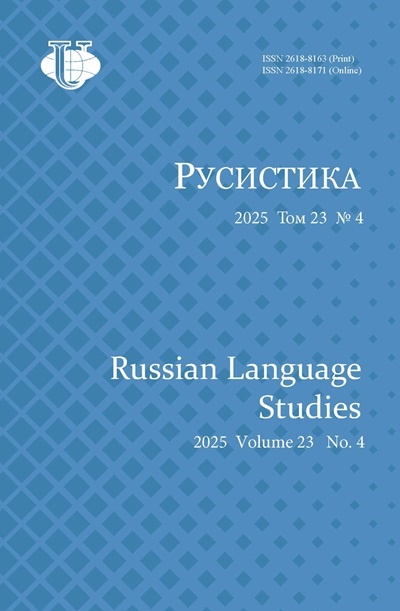Поиск
Выпуск
Название
Авторы
ОБУЧЕНИЕ КОСМОНАВТОВ ПРОФЕССИОНАЛЬНО ОРИЕНТИРОВАННОМУ АНГЛИЙСКОМУ ЯЗЫКУ НА ОСНОВЕ ПРОЕКТНОЙ МЕТОДИКИ
Психолого-педагогическая траектория обучения русскому языку как иностранному: этап речевой адаптации
1 - 90 из 90 результатов
Подсказки: - Ключевые слова чувствительны к регистру
- Английские предлоги и союзы игнорируются
- По умолчанию поиск проводится по всем ключевым словам (агенс AND экспериенцер)
- Используйте OR для поиска того или иного термина, напр. образование OR обучение
- Используйте скобки для создания сложных фраз, напр. архив ((журналов OR конференций) NOT диссертаций)
- Для поиска точной фразы используйте кавычки, напр. "научные исследования"
- Исключайте слово при помощи знака - (дефис) или оператора NOT; напр. конкурс -красоты или же конкурс NOT красоты
- Используйте * в качестве версификатора, напр. научн* охватит слова "научный", "научные" и т.д.











